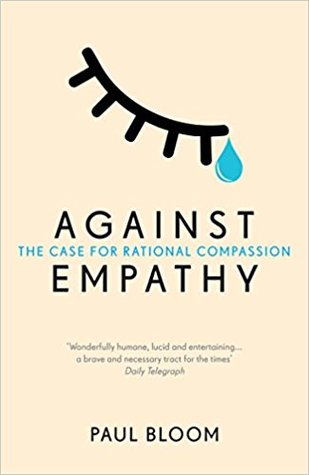

Any inspired action resulting from these feels could be entirely ineffective - or, strategic a guided attempt to manipulate that exact empathetic response.

Hence, Bloom’s stance that he is against empathy - and maybe everyone should kind of be, at least a little bit.īy drawing on his background with cognitive science, Bloom cautions that emotional drives towards altruism may be ineffective mainly because the initiating emotions which prompt empathetic action are simply automatic - the brain makes ’em up. If people take the time to cognitively direct their actions, they may find few actual reasons to act at all. Yet, contrary to popular opinion and policy, Bloom suggests that it’s a taxing cognitive bias that when negative feelings are felt, people must resolve them. In fact, resisting this claim as much as possible may be the best precursor to doing good better.Įmpathy helps people understand other people, or enables the ability to see, feel, or understand an other’s point of view. engaging in empathetic acts does not necessarily mean one is acting as a good person.

empathy alone is not a definitive precursor for empathetic acts, and.Bloom argues that people should examine their role in any empathetic process critically - especially before acting, and consequently, labelling themselves, as good people because: The reason is simple: people are confused by what empathy is and the fact that our brain chemistry isn’t. “If you want to be good and do good, empathy is a poor guide.” “ Against Empathy”, Paul Bloom (2014) Psychologist and author, Paul BloomĪsserts that is worth expanding our intentional use of empathy and compassion because empathy alone is a poor guide to doing good.


 0 kommentar(er)
0 kommentar(er)
